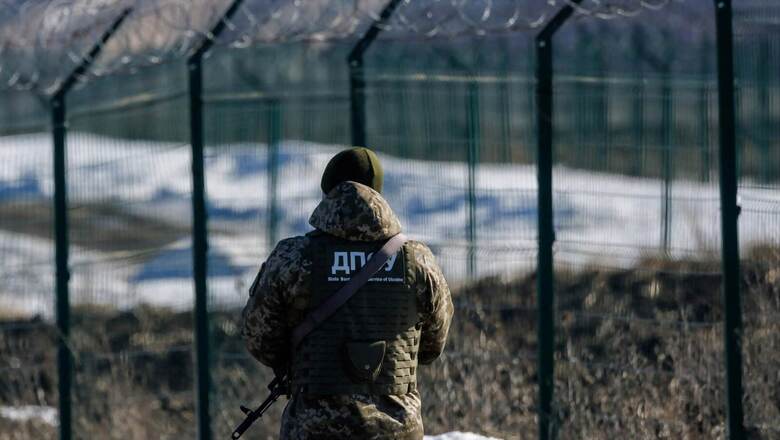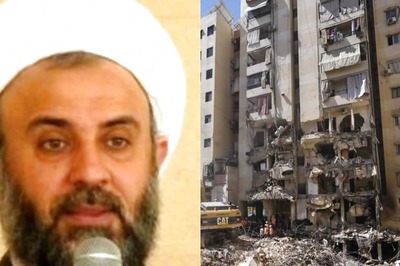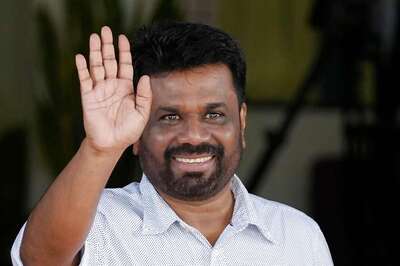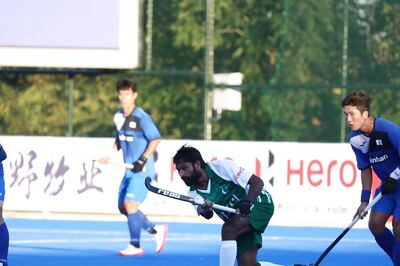
views
In an ideal world, India would have had the luxury of staying on the sidelines of the emerging Great Power contestation between the US-led Western bloc and Russia on Ukraine. Unfortunately, the world is not only imperfect but is regressing to what starry-eyed ‘analysts’ and ‘thinkers’ once believed was a bygone era. Simply put, the era of “the strong do what they can, the weak suffer what they must” is back, and how.
For India, the challenges of diplomacy in this age are much more complex than what they were during the Cold War. India had managed to avoid getting embroiled in the Great Power rivalry during the Cold War. But to avoid getting quashed between two contending power blocs will become much more difficult going forward. This is not only because India is a lot more plugged into the world economy, but also because she is now on the frontlines of this new age of contestation in which it will be difficult to compartmentalise what happens on her east (Indo-Pacific and China) from what happens on her west (Europe, Middle-East, Africa).
Despite the tensions continuing to mount in Ukraine, chances of a hot war breaking out are still low. There could be skirmishes and clashes in Eastern Ukraine, but a Russian invasion of Ukraine is highly unlikely. The reason is that no one really wants a war because no one can really afford one. The thing with wars is that no one knows how much it will expand and where it will end. The Europeans certainly wouldn’t want a war if they can avoid it. The casualties and destruction that will accompany a war has no takers. The Americans too have indicated that they won’t join on the side of Ukraine in the event of a war. Russia, for all her aggressive posturing, would also not want to get enmeshed in a war which will inevitably have unforeseen and unintended consequences. It will prefer to get what it wants – a sort of neutrality of Ukraine – without waging war.
Despite having upped the ante, the Russians have left a window open for diplomacy. The Russian wish list might not be acceptable in its entirety to the West but it does offer a starting point for negotiations. Ideally, if some kind of a solution around Ukraine remaining neutral and not joining NATO is worked out, it will defuse the current crisis. But as long as the question of NATO expansion to Ukraine remains hanging, so too will the tension. Even this is far more preferable for all sides than an all-out war. Unfortunately for Ukraine, it has become something of a fall guy, led up the garden path and then left to fend for itself.
But even if there is no hot war, there is definitely going to be a Cold War 2.0. But the version 2.0 will probably be different from version 1.0, both in terms of scale and scope. The old Soviet empire has been dismantled and the Russian global footprint is much reduced from what it was during Cold War 1.0. Many of the satellite states of Eastern Europe are now part of NATO, out of the Russian sphere of influence. Even in Central Asia, while Russia remains the most influential player, there are other players, including China. But the new Cold War could nevertheless create difficulties for Russia and countries which have a fairly close relationship with her.
If the sanctions that are being contemplated in Western capitals turn out to be overwhelming and sweeping – so far they have hardly been onerous and will probably invite only ridicule from the Russians – it will have a severe impact on Russia and its ability to trade with other countries. India, for example, will face major problems in sourcing her defence equipment and weapons platforms from Russia. There will also be the issue of Russian investments in the defence sector in India, and Indian investments in the oil and gas sector in Russia.
But sanctions will, to some extent, cut both ways. Russia is not just a major player in the oil and gas sector, but also a big player in a number of other commodities and minerals. Even if these can be sourced from elsewhere, there will be a price spike, and perhaps shortages. With inflation already higher than it has been in decades and the world economy struggling to recover from the pandemic, how much pain will the West be willing to bear while ‘punishing’ Russia? Add to this the fact that over the last 40 years since the end of the Cold War, there are significant investments that Western companies have made in Russia. This will also have to be factored in before a sweeping sanctions regime is imposed.
For India, the problem is that in these last 40 years, the Indian economy has become highly integrated with the global economy. Nearly 40 per cent of India’s GDP comes from foreign trade. In 1990, this number was around 15 per cent. The bulk of India’s trade takes place with the US and its allies in Western Europe, and in the Middle East. While India does around $350-400 billion trade (maybe even a little more) with what can loosely be called the West, her trade with Russia is around $10-12 billion (maybe even a little less). At the same time, even though India has started diversifying her defence procurements (in recent years, Indian defence purchases from the US and Western Europe have surpassed purchases from Russia), India remains quite dependent on spares and equipment from Russia. In other words, while India continues to have a close defence relationship with Russia (and this is critical for India), her economic and political interests, and increasingly strategic interests (in the context of China) are much more closely aligned with the West.
ALSO READ | Iron Fist for Putin’s Russia but Kid Gloves for Xi’s China? West May Have Got It All Wrong
The bottom line is that if push comes to shove, there is no easy choice for India to make between Russia and the West. Whatever choice India makes – neutrality, lean towards Russia, or go with the West – it will have consequences. Perhaps, India could continue to stick with her current posture of neutrality if all-encompassing comprehensive sanctions are not imposed. But the neutrality option will become difficult to exercise for India if forces far more powerful than her start pushing and forcing her to choose a side. At that stage, India will have to make a very difficult choice keeping in mind her economic interests, and her political and strategic constraints. India also cannot ignore the fact that the security environment in the neighbourhood will become even more difficult if Russia goes into the Chinese camp and makes some kind of a loose alliance with countries of the neighbourhood like China, Pakistan and Iran – the PRICs.
The challenges for Indian diplomacy will be to leverage common interests with the US and its allies in the East and getting the Americans and Europeans to cut her some slack in her relations with Russia. Of course, this will not be as easy as it sounds. But it is also important that India does not get swayed by romantic, if also foolish, notions that Russia is an eternal friend. Russia will do what is in Russia’s interests. If her interests lie in siding with China – like in 1962 – it will dump India without batting an eyelid. Also Russia hasn’t been the most ideal defence partner in recent years. The old halcyon days when India got the best defence deals from Russia are long gone.
Today, Russians charge top dollar and don’t share any technology – don’t even mention Brahmos here. Worse, the supplies from Russia are erratic and unreliable. All this is not to suggest that the US is some kind of knight in shining armour. Far from it. The Americans too will side with India only to the extent it serves their interests – remember Afghanistan and Pakistan? The only thing is that on the great threat of the 21st century – China – there is some convergence of interests between the US and India. But here again, how strongly did the US come to India’s support during the continuing stand-off with China along the LAC?
Perhaps, India’s path could become easier after the visit of Imran Khan to Moscow. If there is any statement from the Russian side that is offensive to India, or if the Russians enter into any defence deals with the Pakistanis, or do any other deal that impacts India’s interests in Afghanistan and the region, it will give India some room to recalibrate her stand. Otherwise, we will have to find some way to keep our head low and find a way out of the pickle in which we find ourselves.
Sushant Sareen is Senior Fellow, Observer Research Foundation. The views expressed in this article are those of the author and do not represent the stand of this publication.
Read all the Latest Opinion News and Breaking News here




















Comments
0 comment